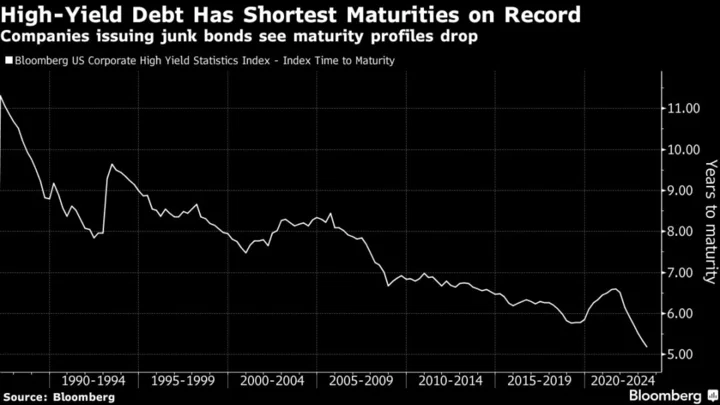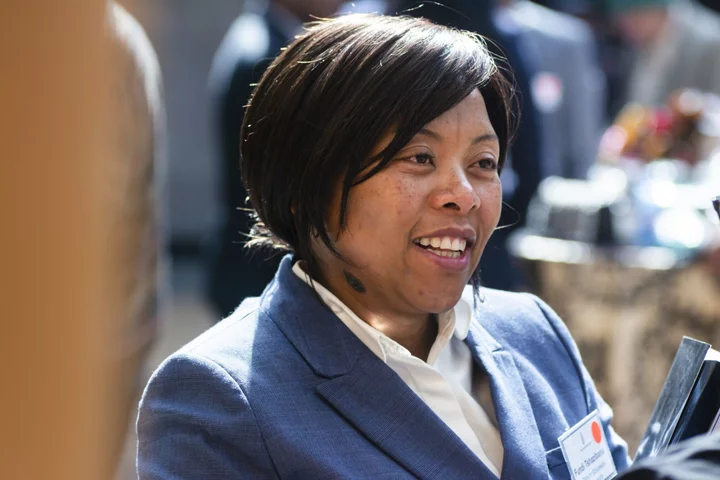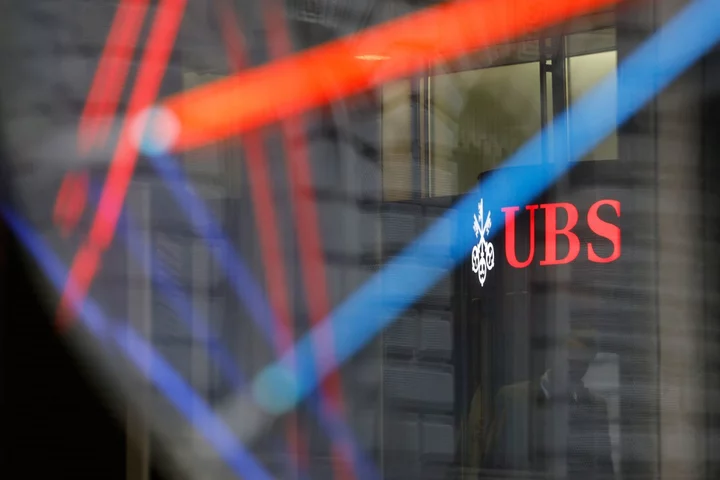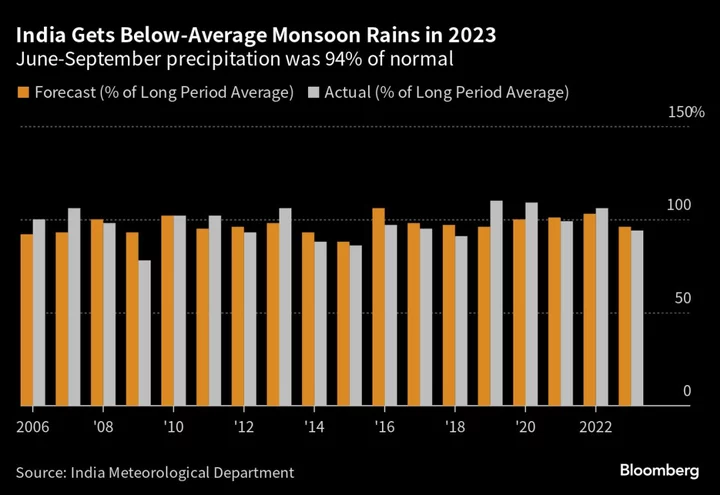America’s most leveraged companies got a painful reality check this week when Federal Reserve Chairman Jerome Powell warned that a rate cut is still a couple of years away.
Companies will have to swallow higher borrowing costs for longer while finding a way to manage their liabilities. Rising funding costs increase the risk of defaults and distressed exchanges as firms struggle to adapt to a shrinking money supply.
By January, companies will have about $260 billion of debt coming due within a year, about double the current level, according to data compiled by Morgan Stanley. The wall of debt grows even more from there as cheap borrowings taken out during the pandemic need to be refinanced.
“If these monetary conditions continue for as long as the Fed says, we are going to see a lot of mortality in the corporate sector and this process is only just starting,” said Juan Carlos Ureta, chairman at Renta 4 Banco in Madrid.
It’s a blow for chief financial officers who hoped that the Fed would blink and reverse rate hikes amid the uncertain economic outlook. At least some junk-rated companies held off on issuing new debt this year and last, hoping that lower yields were on the way.
With fewer companies having refinanced debt, the average maturity of junk bonds in the index fell to just over five years, the lowest on record, according to data compiled by Bloomberg.
More debt to refinance increases the risks of defaults, which should peak at 9% for US high-yield and 11% for leveraged loans in the fourth quarter of next year, according to analysts at Deutsche Bank AG.
“‘Higher for longer’ puts more pressure on lower-quality borrowers,” strategists at MS, including Srikanth Sankaran, wrote in a note this week. “For smaller and lower-quality companies, the adjustment could well be disruptive as 2025 maturity walls come into view.”
Some companies will turn to distressed exchanges, which can include debt for equity swaps and buying back debt at a discount, to try to avoid bankruptcies but the measures are sometimes merely a way of delaying the pain.
For example, 16 companies defaulted last month, according to Moody’s. Six of those had done so before, four of which conducted distressed exchanges.
Companies opting for these transactions have had mixed fortunes this year — WeWork Cos saw an 86% participation rate in its debt swap, while Carvana Co. canceled a torturous exchange earlier this month after not receiving enough participation from bondholders.
“Such deals are going to need to be much richer and much more favorable to debt holders” to get done, said Sonal Desai, chief investment officer for Franklin Templeton Fixed Income.
For now, the higher borrowing rates continue to affect the bottom line. Interest costs for US companies ballooned 22% in the first quarter compared with a year earlier, according to a survey by data provider Calcbench Inc.
Higher for longer rates may break companies with challenged business models, said Jeremy Burton, a portfolio manager at PineBridge Investments.
“It’s not necessarily going to be the ultimate cause of default, but the proximate cause of default,” he said. “Companies that are facing problems with earnings in decline or under pressure, whether short term or long term, they’ll have less time to work things out.”
Week in Review
- Bed Bath & Beyond Inc. picked Overstock.com Inc. as the lead bidder in an upcoming bankruptcy auction for the right to own the big box store’s brand.
- Private credit firm Blue Owl Capital Inc. is weighing an entry into European direct lending that may include building a team or buying an existing fund manager.
- A group of investors, including Anchorage Capital Partners and BlackRock Inc., which hold more than €1 billion ($1.09 billion) of SBB bonds have hired PJT Partners to counter the efforts of rival creditors that claim the company is at risk of default.
- Banks are discussing bond exchanges for hybrid bonds, an unusual solution to the dilemma facing Europe’s $220 billion market.
- Mallinckrodt Plc struck a deal to delay a $200 million opioid settlement payment originally due June 16 as it continues evaluating options to restructure its balance sheet.
- China’s dollar junk-bond market has started reversing a four-month slide as authorities mull a broad package of stimulus measures to boost the economy. The country’s central bank cut short-term interest rates last week.
On the Move
- Citigroup Inc. co-head of debt capital markets syndicate Nick Darrant is retiring from the industry, with Tim Michael becoming sole head, according to an internal memo seen by Bloomberg. Darrant said his next destination will be Rwanda.
- Bank of America Corp. named Chris Dodman co-head of global debt advisory, and Jon Mullen and Wajeeh Faheem co-heads of North American syndicated loan capital markets.
- BNP Paribas SA is making a raft of hires as it continues to expand its credit business, including Greg Ford who is joining from Stifel Nicolaus & Co. as a managing director to head distressed credit in the Americas. Mike Romanowski is also joining as managing director in distressed sales, after working at Credit Suisse Group AG, as well as Chris Hynes and Hal Steiner, also from Credit Suisse. Hynes and Steiner take on roles as directors focused on high-yield trading and high-yield research, respectively. Dennis Lu will serve as director in high-grade trading.
- Bank of America Corp. is adding to its team that trades credit default swaps with two senior executives from BNP Paribas SA, namely Matt Mandell, former head of US single-name CDS trading at BNP, and Eric Deutsch, who also focused on single-name CDS.
- Mitsubishi UFJ Financial Group has hired Keith Zusi as a trader on its loan distribution team within its capital markets group, according to a bank spokesperson.
--With assistance from Charles Penty and Dayana Mustak.









